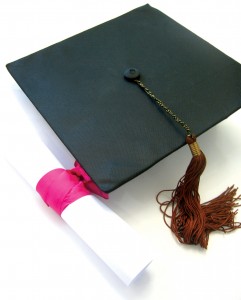 AKIN, Ill. — An eighth-grader in Illinois was recently prohibited from delivering a speech and a prayer during his graduation ceremony due to their religious content.
AKIN, Ill. — An eighth-grader in Illinois was recently prohibited from delivering a speech and a prayer during his graduation ceremony due to their religious content.
Seth Clark, the salutatorian at Akin Grade School, instead presented his message and invocation across the street following the service.
According to reports, Clark submitted his speech for prior approval as is the standard procedure, but was told that some of his planned remarks posed an issue. Clark had included text in his address surrounding “God-like forgiveness” and also cited a Scripture. He additionally wanted to pray.
“I would like to apologize to all of you that I have hurt at any time in any way,” Clark was to have stated. “I am not perfect, but as found in 1 Peter 1:16, ‘Be holy as I am holy.'”
Akin Superintendent and Principal Kelly Clark contended in a statement that while the religious beliefs of students are respected, those sentiments cannot legally be a part of a public school ceremony.
“While students are welcome to pray or pursue their faith without disrupting school or infringing upon the rights of others, the United States Constitution prohibits the school district from incorporating such activities as part of school-sponsored events, and when the context causes a captive audience to listen or compels other students to participate,” she said.
‘”Because graduation is an official, school-sponsored event, the law would prohibit incorporating prayer or worship into the schedule of events,” Clark continued. “We respect the diverse beliefs our students and their families hold, and we strive to educate all such students in compliance with the law.”
When family friend Rickey Karroll heard about the matter, he offered the student and two other boys the use of his yard to deliver their intended speech.
“I told them you can go across to the house over there,” he recalled to reporters. “I think he has the right to give his opinion and he wanted to do a prayer. Last time I checked, we are still the United States of America and it’s the right to freedom of speech.”
According to the Benton Evening News, Clark advised during the small service that because his speech had not been approved, he would present it across the street.
An estimated 40-50 people came to hear hear Clark’s message and prayer. His parents, being members of the school board, have declined to comment on the matter, but simply say that they are pleased with their son.
View a video about the situation here.
As previously reported, the first textbook used in the American colonies even before the nation’s founding, “The New England Primer,” was largely focused on the Scriptures, and was stated to be popular in public and private schools alike until approximately the early 1900’s. It used mostly the King James Bible as reference, and spoke much about sin, salvation and proper behavior.
“Save me, O God, from evil all this day long, and let me love and serve Thee forever, for the sake of Jesus Christ, Thy Son,” it read.
Many of the Founders’ children learned to read from the primer.
Noah Webster’s famous “Blue Back Speller” also referenced Christianity, including God-centered statements in reading lessons such as “The preacher is to preach the gospel,” “Blasphemy is contemptuous treatment of God,” and “We do not like to see our own sins.” Webster is known as the father of American education.
Become a Christian News Network Supporter...


